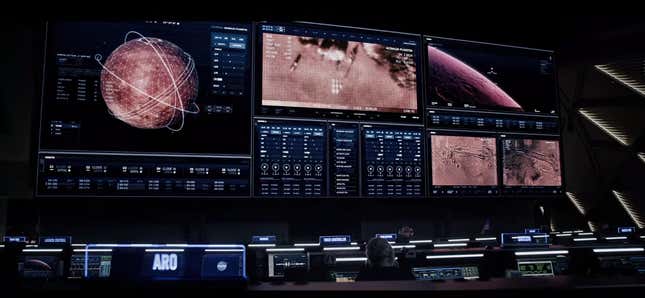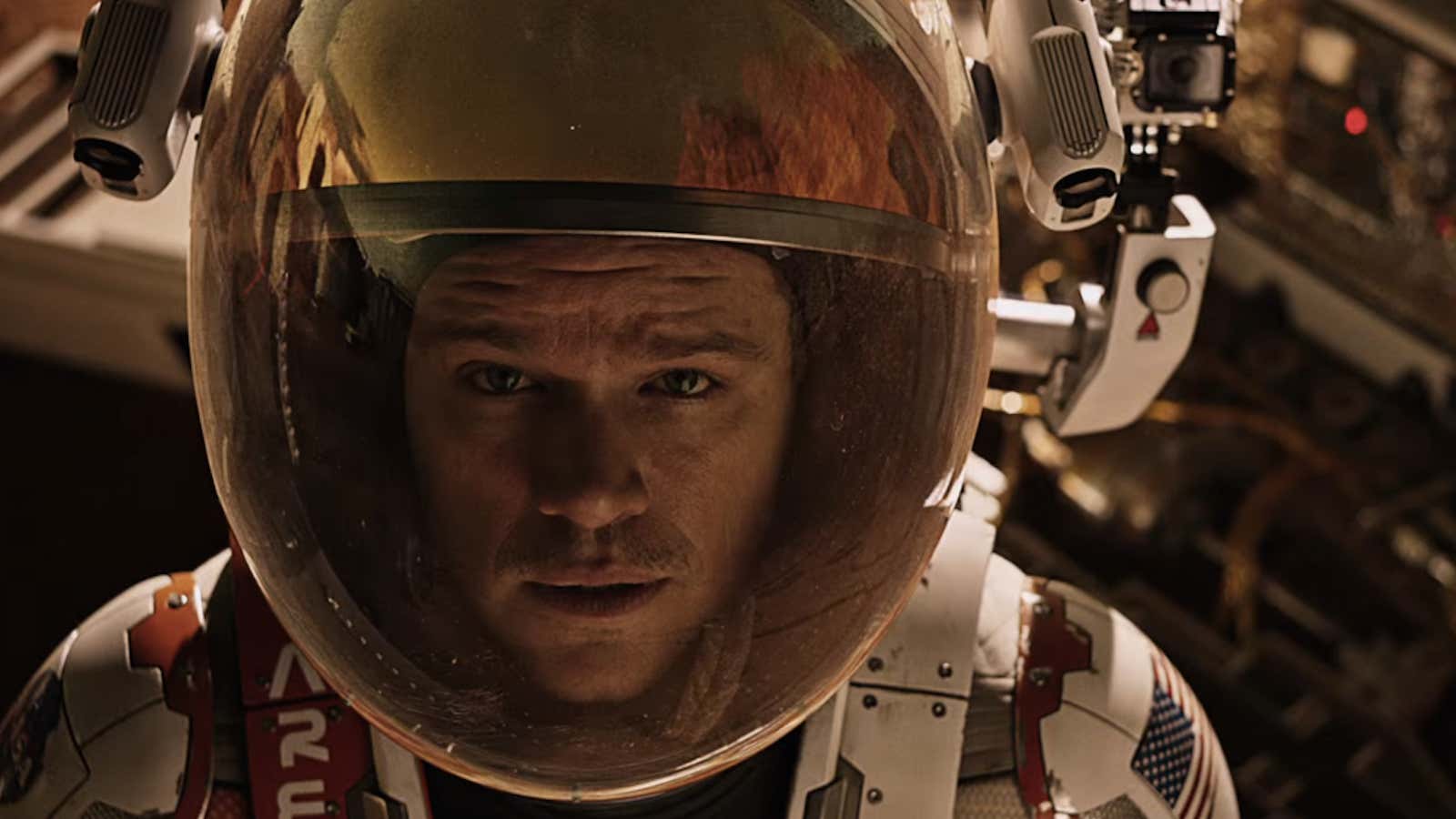Astronaut disclaimer: I have never written a movie review until now. Of course, prior to 1998 I had never done any astronaut stuff either, and that turned out pretty well. So here goes nothing!
Recently, I was given a great opportunity. Along with an entourage of NASA scientists, engineers, management, and administrative/support staff, my colleagues and I entered a packed movie theater united in pursuit of the day’s mission. Per our timeline, we purchased popcorn and drinks, performed last minute checks of our social media sites, and then sat back to enjoy a preview of The Martian, courtesy of 20th Century Fox.
Highly anticipated by those of us who consider ourselves space geeks, the movie did not disappoint. Oh sure, there were some technical “that’s not quite right” glitches (mostly met with chuckles throughout the theater) but overall, I was quite entertained by the sci-fi tale of courage and ingenuity on the Red Planet.
Director Sir Ridley Scott (who, by the way, did a lovely video thank you/tribute to NASA for its cooperation in making the film), succeeds in bringing author Andy Weir’s 2011 novel to the screen with help from a well-conceived screenplay adaptation from Drew Goddard. (Nice space name!)
Having already read and enjoyed Weir’s excellent adventure, I was pleasantly surprised with the effective presentation of the novel on screen. Seeing beautiful Martian vistas, punctuated by mountainous terrain in variegated hues of orange, made it seem as if humans were already living there. The use of high-altitude and digitally accurate perspectives of the Martian surface pulled at my heart strings. And I loved that Andy Weir developed a relationship with NASA after publishing the novel, leading the push to involve the space program directly with Scott. The resulting emphasis on science provides an enjoyable balance between the film’s considerable entertainment value and its educational, inspirational, and technological references.
What truly stood out in my mind, however, was not the beautiful cinematography. Nor was it the enticing musical score, or superb acting led by an appropriately irreverent Matt Damon, playing the stranded astronaut Mark Watney. Rather for me, the highlight was the film’s refreshing and inspiring depiction of NASA. I’m not talking about physical depictions mind you (the Vertical Assembly Building does not reside at the Johnson Space Center) but instead the film’s sense of an ever-present drive on the part of NASA employees to pull together to win the day, even in the midst of seemingly insurmountable odds. Just as I witnessed so often throughout my own 30-year NASA career, a team of ordinary, caring people with little regard to their personal needs put in just a little bit extra, to do something extraordinary.
I felt an immense sense of pride as I witnessed the fictional yet plausible teamwork and collaboration between NASA’s unmanned robotic programs—housed at Pasadena, California’s Jet Propulsion Laboratory—and its human-mission teams at the more recognizable Misson Control Center in Houston.
NASA, more recently depicted through the lens of the mundane, reduced to a series of news articles about budgetary standoffs and political squabbles rises above it all in this fictional thriller. In marked contrast to news media’s reality, The Martian paints what I believe is a much truer picture of our nation’s space program, one that requires the collaborative efforts of all teams in order to successfully explore whatever it is that’s potentially “out there.”

To that point, I reveled in the scenes of international cooperation. Not between today’s actual international partners of the space station (15 strong), but with China, the newcomer in the race for space. A science fiction survival and rescue story in which one of the US’s current adversaries plays a key role in the mission’s success? What a tantalizing and hopeful vision for the future!
Ultimately, in spite of its technical flaws (I leave those points to scientists more technically qualified than I—that’s your cue, Neil de Grasse Tyson), I liked The Martian. I am hopeful that many other earthlings will like it too. And maybe even a few Martians!
The moral is clear: Add extra to ordinary, and you, like Mark Watney, can be extraordinary! A perfect metaphor for our space program, and an inspirational message for anyone aspiring to push themselves to greatness.
